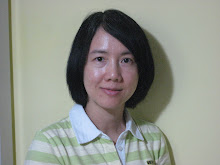
7TH ASIAN & OCEANIAN EPILEPSY CONGRESS ( AOEC )
Time passes by so fast. I still have fresh memories of the epilepsy congress that I attended last year and this year’s epilepsy congress is already an event of the past. I had attended the 7th Asian & Oceanian Epilepsy Congress AOEC ( People with Epilepsy And Caregivers Program ) which was held on 16th May 2008 at Xiamen, China.
As an epilepsy activist I always look forward to attending epilepsy congresses to learn more about the latest progress in the treatment of epilepsy in developed and developing countries, to participate in Question & Answer sessions (Q & A) of topics that are of great interests to me and naturally also to meet up with my foreign People With Epilepsy (PWE) friends again.
On the 15th of May I attended a talk organized by UCB (M) Bhd held at the Sheraton Hotel, Xiamen. Three invited speakers spoke on different topics. My favorite topic was Adolescence & Women. A general case study based on a 15 year old epileptic girl was being discussed. The speaker reminded medical delegates that extra careful considerations and right decisions have to be made when prescribing anti epileptic drugs (AED) as the effects of AED will affect the 15 year old girl’s life starting from puberty to finishing university, working to being married and pregnancy to motherhood that will eventually lead to menopause and old age.
The speakers had also highlighted a common point in their talks and that is it is important for caregivers to have their hand phones with camera and video functions always with them. Caregivers can use hand phones to take photo shots and videos of their love ones while in states of seizures. Neurologists can assess their patients’ epileptic seizures more accurately by viewing the photo shots and video clips as compared to verbal reports given by caregivers.
On the morning of 16th of May I was overjoyed to see my overseas friends from Philippines, Taiwan, Hong Kong and Singapore at the Xiamen International Conference and Exhibition Centre. Existing friendships were strengthened and new friendships were fostered. Delegates also came from China, Thailand, India and Mongolia.
The program for this day started with the acknowledgement and presentation of Outstanding Persons Awards to eight recipients from various countries. Recipients gave testimonies of how they struggled with having epilepsy, how they conquered it and how much they had contributed towards epilepsy awareness work in their respective countries.
Speakers for the day came from New Zealand, India, China, Mongolia, Taiwan and Australia. Topics ranged from Epilepsy Distance Learning in India, Formation of a Support Group in Shanghai, Promising Strategy Program in Mongolia, Study on Stigma in China and Introduction of Epilepsy Ambassadors. I found the topic on Tips to Expand Your Organization to be very interesting and hope I will be able to share the information I had gained with my fellow friends in Malaysia.
Towards the later part of the day delegates were given opportunities to voice their opinions about whether the term “epilepsy” in some languages and dialects could cause misconception and stigma and also whether there is a need to change the term appropriately to eradicate misconception and stigma. Delegates participated actively in this interactive session with a panel of six neurologists. Because of time constraint a sub panel was being formed to deliberate further on this topic.
The day ended with a buffet dinner for the delegates at the Seaside Hotel which is conjoined to the convention centre. I had some time to mingle with the Chinese delegates. They were very friendly and warm towards me. We had photos taken together and I was also given small Olympic souvenir items by them.
On the whole the 7th AOEC was an event worth attending for people with epilepsy and caregivers. AOEC is held once every two years in different countries. The next AOEC will be held in Australia in 2010. I returned to Malaysia bearing in mind a quote that an Australian speaker shared with us and that is “ When I let go of what I am, I become what I might be “. My passion in doing epilepsy awareness work remains deep and I hope people with the Ministry of Health, corporate sectors and our local epilepsy society can collaborate better to bridge the wide gap between people with epilepsy and society.









No comments:
Post a Comment
Please write your comments here